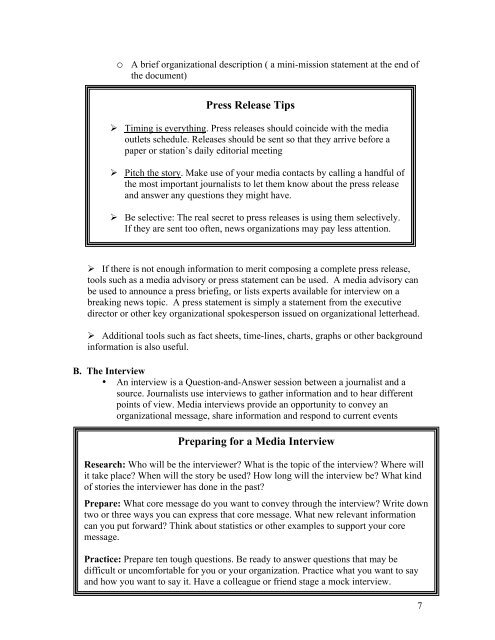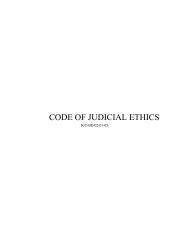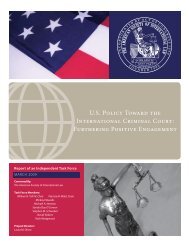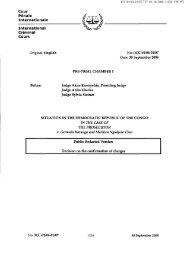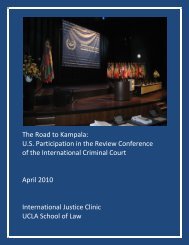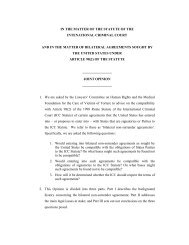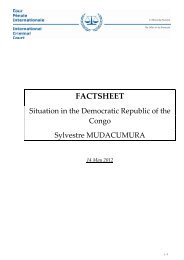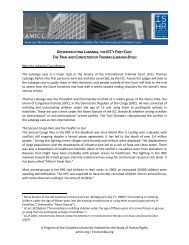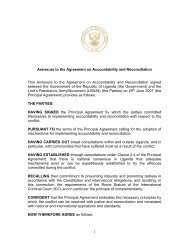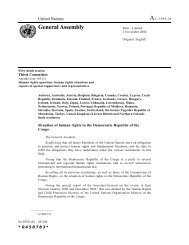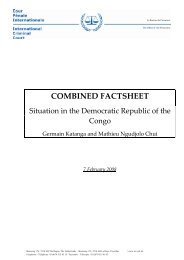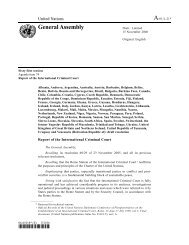NGO Media Outreach: Using the Media as an Advocacy Tool - AMICC
NGO Media Outreach: Using the Media as an Advocacy Tool - AMICC
NGO Media Outreach: Using the Media as an Advocacy Tool - AMICC
- TAGS
- using
- advocacy
- tool
- amicc
- www.amicc.org
Create successful ePaper yourself
Turn your PDF publications into a flip-book with our unique Google optimized e-Paper software.
o A brief org<strong>an</strong>izational description ( a mini-mission statement at <strong>the</strong> end of<br />
<strong>the</strong> document)<br />
Press Rele<strong>as</strong>e Tips<br />
� Timing is everything. Press rele<strong>as</strong>es should coincide with <strong>the</strong> media<br />
outlets schedule. Rele<strong>as</strong>es should be sent so that <strong>the</strong>y arrive before a<br />
paper or station’s daily editorial meeting<br />
� Pitch <strong>the</strong> story. Make use of your media contacts by calling a h<strong>an</strong>dful of<br />
<strong>the</strong> most import<strong>an</strong>t journalists to let <strong>the</strong>m know about <strong>the</strong> press rele<strong>as</strong>e<br />
<strong>an</strong>d <strong>an</strong>swer <strong>an</strong>y questions <strong>the</strong>y might have.<br />
� Be selective: The real secret to press rele<strong>as</strong>es is using <strong>the</strong>m selectively.<br />
If <strong>the</strong>y are sent too often, news org<strong>an</strong>izations may pay less attention.<br />
� If <strong>the</strong>re is not enough information to merit composing a complete press rele<strong>as</strong>e,<br />
tools such <strong>as</strong> a media advisory or press statement c<strong>an</strong> be used. A media advisory c<strong>an</strong><br />
be used to <strong>an</strong>nounce a press briefing, or lists experts available for interview on a<br />
breaking news topic. A press statement is simply a statement from <strong>the</strong> executive<br />
director or o<strong>the</strong>r key org<strong>an</strong>izational spokesperson issued on org<strong>an</strong>izational letterhead.<br />
� Additional tools such <strong>as</strong> fact sheets, time-lines, charts, graphs or o<strong>the</strong>r background<br />
information is also useful.<br />
B. The Interview<br />
• An interview is a Question-<strong>an</strong>d-Answer session between a journalist <strong>an</strong>d a<br />
source. Journalists use interviews to ga<strong>the</strong>r information <strong>an</strong>d to hear different<br />
points of view. <strong>Media</strong> interviews provide <strong>an</strong> opportunity to convey <strong>an</strong><br />
org<strong>an</strong>izational message, share information <strong>an</strong>d respond to current events<br />
Preparing for a <strong>Media</strong> Interview<br />
Research: Who will be <strong>the</strong> interviewer? What is <strong>the</strong> topic of <strong>the</strong> interview? Where will<br />
it take place? When will <strong>the</strong> story be used? How long will <strong>the</strong> interview be? What kind<br />
of stories <strong>the</strong> interviewer h<strong>as</strong> done in <strong>the</strong> p<strong>as</strong>t?<br />
Prepare: What core message do you w<strong>an</strong>t to convey through <strong>the</strong> interview? Write down<br />
two or three ways you c<strong>an</strong> express that core message. What new relev<strong>an</strong>t information<br />
c<strong>an</strong> you put forward? Think about statistics or o<strong>the</strong>r examples to support your core<br />
message.<br />
Practice: Prepare ten tough questions. Be ready to <strong>an</strong>swer questions that may be<br />
difficult or uncomfortable for you or your org<strong>an</strong>ization. Practice what you w<strong>an</strong>t to say<br />
<strong>an</strong>d how you w<strong>an</strong>t to say it. Have a colleague or friend stage a mock interview.<br />
7


